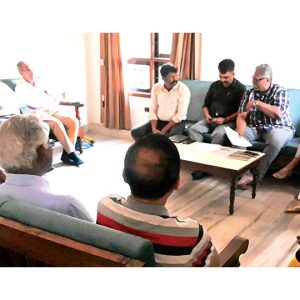Birth and death, the two events marking the start and end of life’s journey, the first perceived as an accident and the second accepted as inevitable in case of all living beings have not spared even the characters featured in the land’s epics scripted between five and ten thousand years ago. Barring a few among them, all of them are portrayed as divinity and inevitability of death in their case is attributed to fate, a term freely used by the land’s lay people in our times on sad occasions marked by both mishaps and fatality involving near and dear ones. Unmindful of uncertainty about when fate strikes, with either an approximate dateline or with exactitude, birth in the family is a celebratory happening and death is not accepted without reservation in general. Thanks to medical science and the inputs by the physician, suffering due to set back in normal health can at best be kept within limits of bearing pain, until the person’s final departure to an uncharted region.
The adjectival terms heavenly and hellish derived from the commonly accepted existence of a world of bliss as a place of resting for those doing good deeds and a world of harsh penalties for those committing sins in life’s journey have drawn flak from certain well-marked circles in society. However, the rest in the land’s population, either because of conventional belief or some exposure to spirituality, long for liberation from birth-death cycle but don’t opt for death on own volition. That brings us to the issue of euthanasia.
From scholars delivering epic-based discourses, we learn about some characters figuring in the narration of the land’s ancient scripts choosing to depart voluntarily. The name of the Kourava patriarch Bhishma stands out among them, being portrayed as one who possessed the power to die at will (ichhaamarani). While anybody in the country tries to emulate him and survive the attempt to take the extreme step, such a person comes under the ambit of law inviting punishment whatever. Further, current position in the country doesn’t include the provision of deciding departure even to get relieved of extreme pain and suffering in cases of terminal diseases.
Opinion is divided on the issue of legally permitting a person choosing to depart because of acute deterioration of quality of life as a result of whatever factor, including terminal illness. A member of a Swiss Clinic reportedly helping a centenarian to end his life has opined that it is an atrocity to deny him his voluntary decision to die. Most people in his position would support passing the euthanasia law.








Recent Comments